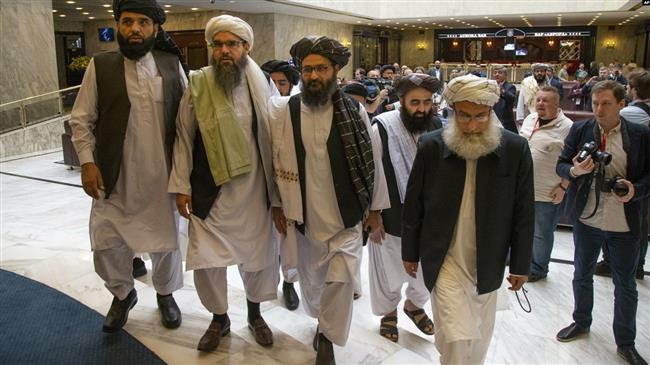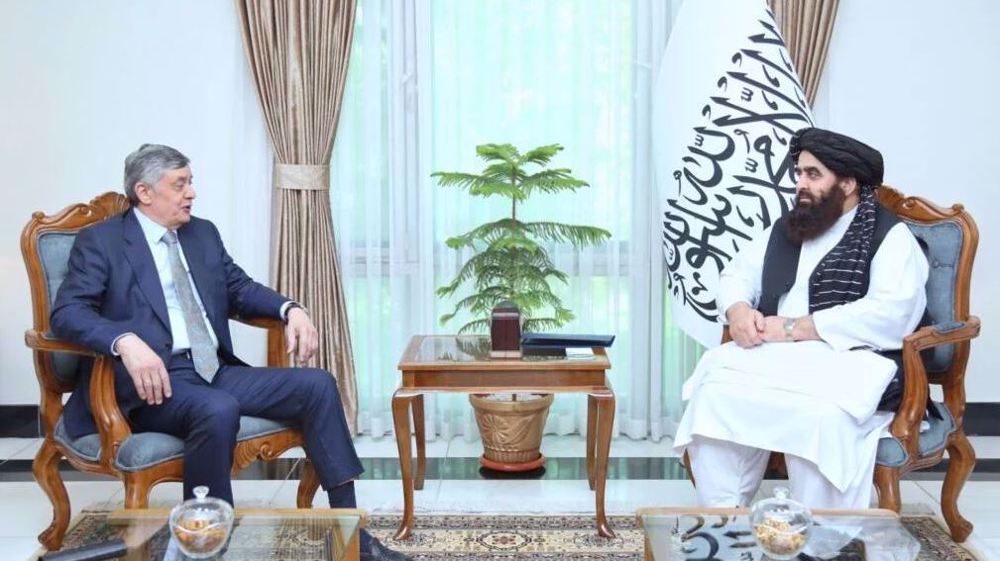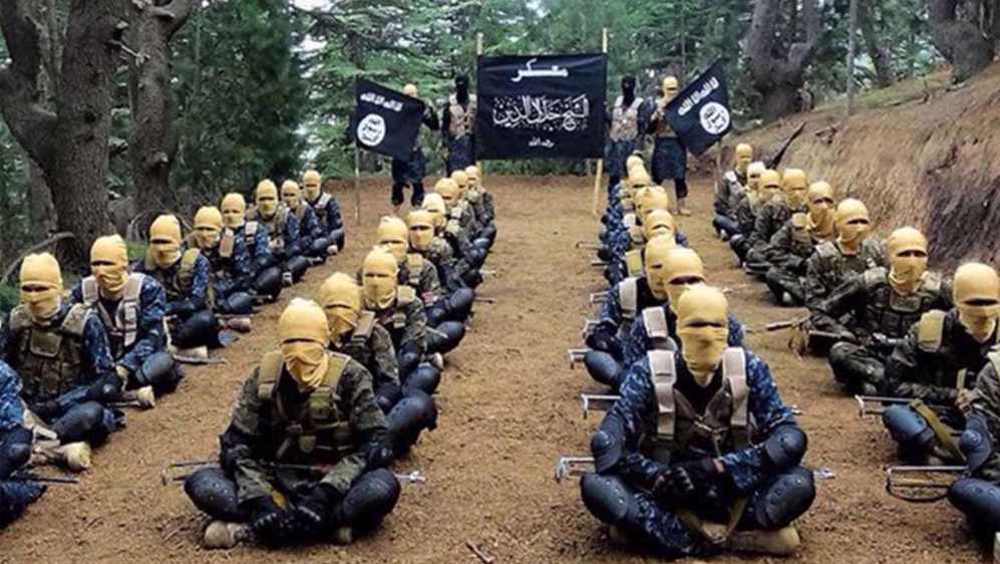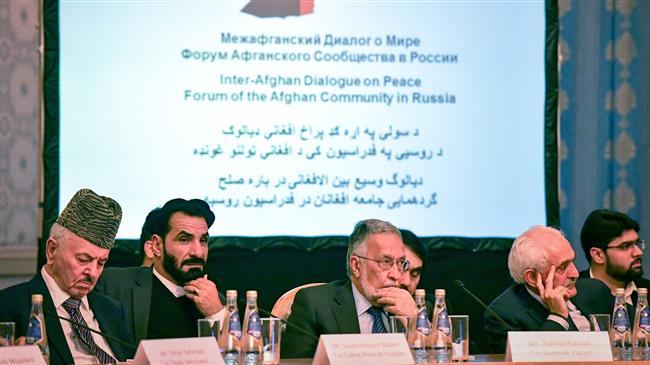Taliban chief vows to keep up war on foreign forces until goals met
The leader of the Taliban militant group has vowed to continue battling US-led foreign forces in the country until its objectives are fulfilled, stressing that the group did not plan to sit down for talks with Kabul.
Mullah Haibatullah Akhundzada claimed in a message on Saturday that the Taliban sought an end to decades of war and a government that represented the entire Afghan population, but offered no sign of agreeing to a ceasefire or negotiating with the central government.
“No one should expect us to pour cold water on the heated battlefronts of Jihad or forget our 40-year sacrifices before reaching our objectives,” he said in the message, adding that the Taliban aimed for “an end to the occupation and establishment of an Islamic system.”
He also gave little sign that the militants would repeat last year’s truce over the three-day Eid al-Fitr holiday, which led to unprecedented scenes of Taliban members and government soldiers mingling and even embracing in the streets of Kabul.
The development came as representatives of the terrorist group have been negotiating with American diplomats for months about withdrawing more than 20,000 US and NATO coalition troops in exchange for guarantees that Afghanistan will not be used as a base for attacks against Western targets in the region and elsewhere.
Taliban representatives have also met senior Afghan politicians and civil society representatives, most recently in the Russian capital of Moscow this week, as part of a so-called intra-Afghan dialogue to discuss the country’s future.
However, the Taliban has demonstrated no sign of giving into demands for a ceasefire and formal talks with Afghan President Ashraf Ghani’s government, which Mullah Haibatullah accused of trying to sabotage dialogue between what he referred to as “the Islamic Emirate” and Afghan political figures.
“The Islamic Emirate shall pay no heed to such futile efforts and diplomatic obstructions being created for the intra-Afghan dialogue,” he underlined in his message.
“The Islamic Emirate seeks the establishment of a sovereign, Islamic and inclusive government acceptable to all Afghans in our beloved homeland,” the message further claimed.
The Taliban leader also offered assurances that the Taliban did not seek a monopoly over power and would respect the rights of all Afghans and develop education, commerce, employment and welfare.
He did not, however, tackle one of the key concerns in Kabul, that is, whether the Taliban would accept the current constitutional framework of the Islamic Republic of Afghanistan or insist on a so-called “Islamic Emirate,” the name given to their own system.
This is while Afghan officials have also been suspicious of the US negotiations with the militant group, which they regard as a means of reinforcing the Taliban and powerful regional politicians while sidelining the legitimate government in Kabul.
US vetoing of Gaza ceasefire resolution ‘disgraceful’: Iran’s UN envoy
VIDEO | IAEA adopts anti-Iran resolution tabled by E3
VIDEO | Iran's president urges Pope to help end Israel's onslaught in Gaza
Iran's senior legal official: ICC arrest warrant for Netanyahu ‘great victory'
Nov. 21: ‘Axis of Resistance’ operations against Israeli occupation
VIDEO | Israeli forces storm West Bank’s Jenin again, target civilians
Iran activates advanced centrifuges after IAEA's 'unjust' resolution
VIDEO | Press TV's news headlines















 This makes it easy to access the Press TV website
This makes it easy to access the Press TV website